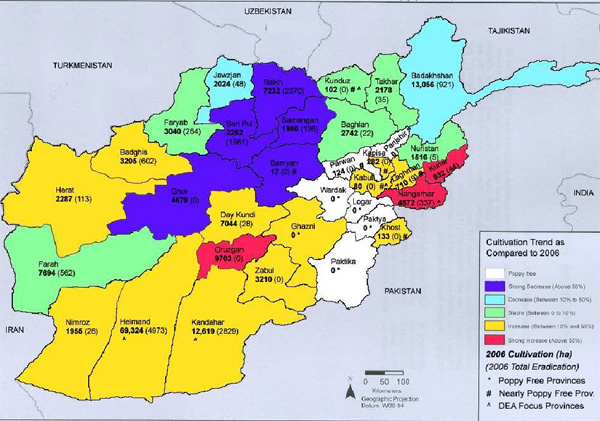On August 9, the Bush Administration issued its revised U.S. Counternarcotics Strategy for Afghanistan. The main innovation is the explicit use of enhanced "sticks and carrots" to change Afghans' behavior. Protracted infighting within the administration in recent weeks about timing and tactics had twice delayed the new strategy's publication. Despite the extra editing time, senior Democrats and Republicans in Congress called the revisions inadequate given the magnitude of the problem. Preliminary assessments of the data the U.N. Office on Drugs and Crime plans to release next month indicate that opium poppy cultivation in Afghanistan has increased by 15 percent during the past year, making the country responsible for approximately 95 percent of the world's total production. Although acknowledging their disappointment, U.S. officials argued this staggering figure actually presented an opportunity since any reductions in Afghan opium would make a major contribution to reducing global supplies. At the roll-out, the architects of the administration's revised policy -- John Walters, U.S. director of national drug control policy, and Thomas A. Schweich, acting assistant secretary for the Bureau of International Narcotics and Law Enforcement Affairs -- argued that the main principles underpinning the five-pillar Afghan counternarcotics strategy, announced two years ago, remained essentially correct.
New U.S. Counternarcotics Strategy for Afghanistan Leaves Critics Dissatisfied

